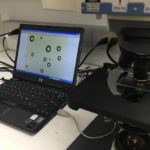Frequently asked questions of the Collier Mosquito Control District

Patrick Linn, MS, MSHAPI
Executive Director, Collier Mosquito Control District
Every day we receive emails and phone calls from residents who have questions about mosquitoes, our operations, and the control materials used in Collier County. Our staff collectively compiled a few of the most frequently received queries, which we share with you here.
1. Will your control materials harm me, my kids, or my pets?
We understand that the potential for pesticide exposure concerns many, many people. We also know that some people may have heightened sensitivity to chemicals, whether it’s perfume or pesticides. That’s why we strictly follow label instructions when dispersing our EPA-approved control materials. Mosquito control treatments, when applied according to the label, pose no reasonable harm to humans, the environment, or pets. That said, we offer our community the opportunity to register for advance notification of applications so they can plan accordingly.
2. Do I need to cover my plants before you apply a treatment?
 Because our materials are applied in ultra-low volume (i.e., less than 1 ounce per acre) in a very fine mist at 300’, very little if any of the microscopic droplets make it to the ground, and if they do, they are quickly degraded by sunrise. There is no residual effect. Plants and garden beds do not need to be covered or harvested before a treatment. Due to the microbial nature of our world, we recommend you use the same practice as with any grocery or market produce, and rinse with water and a mild detergent before consuming.
Because our materials are applied in ultra-low volume (i.e., less than 1 ounce per acre) in a very fine mist at 300’, very little if any of the microscopic droplets make it to the ground, and if they do, they are quickly degraded by sunrise. There is no residual effect. Plants and garden beds do not need to be covered or harvested before a treatment. Due to the microbial nature of our world, we recommend you use the same practice as with any grocery or market produce, and rinse with water and a mild detergent before consuming.
3. What about other insects, like bees? Do you kill them, too?
The small dose of materials we use are calibrated specifically for mosquitoes, which are much smaller than “non-target” insects. Additionally, material is dispersed in tiny droplets – picture about 15 drops on a pin head. By applying our treatments during the late evening hours, we’re also minimizing the contact most other insects will have with the materials. We’ve heard from area beekeepers that our advance notifications allow them to cover their hives if there’s any concern about the bees bearding outside of the hives during warm evenings.
4. When do you drop dragonflies? Short answer: we don’t.
 Every spring, residents from the southern reaches of the county call us with this question. Apparently, it’s a very popular urban myth in part of our community, but we’ve never dropped a single dragonfly from one of our ships. This one makes our pilots chuckle at the thought of flying an airplane full of fluttering dragonflies.
Every spring, residents from the southern reaches of the county call us with this question. Apparently, it’s a very popular urban myth in part of our community, but we’ve never dropped a single dragonfly from one of our ships. This one makes our pilots chuckle at the thought of flying an airplane full of fluttering dragonflies.
To learn more about the District’s operations, public tours are available. Included are presentations by our research team in the laboratory, our operations/surveillance team, and a visit to the hangar. We also make arrangements for staff to conduct presentations at group meetings. Please call our office at (239) 436-1000 to schedule a tour or if we can provide more information. Visit our website at www.cmcd.og to sign up for advance notifications or to report nuisance mosquitoes.



Leave a Reply
Want to join the discussion?Feel free to contribute!